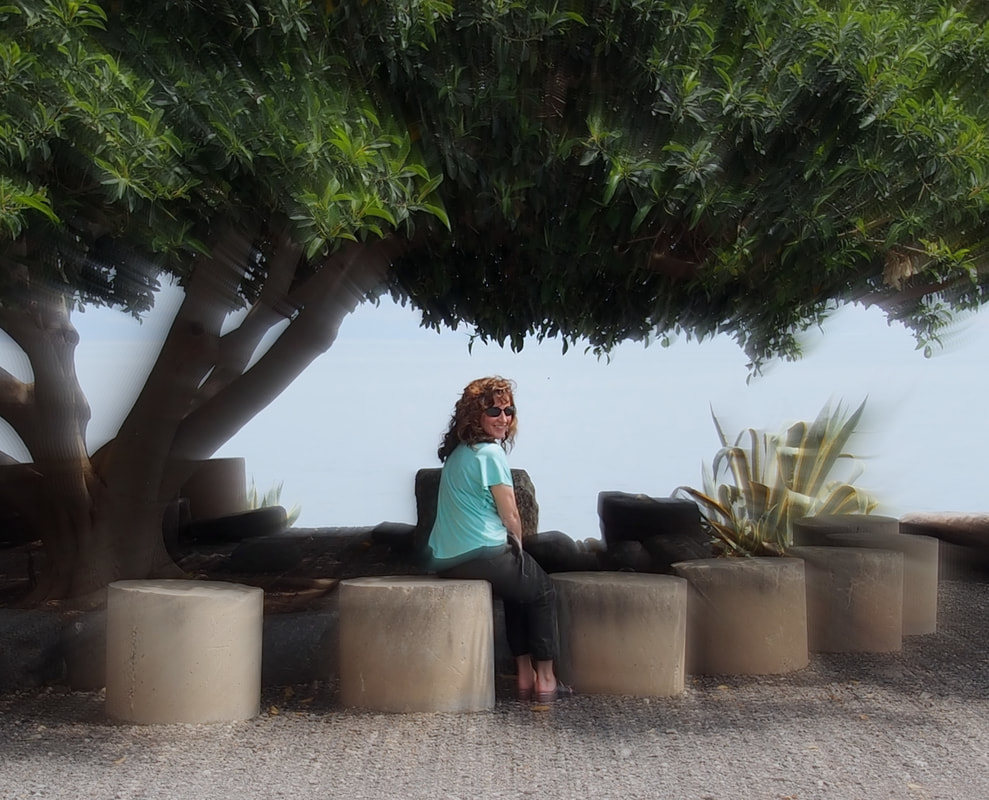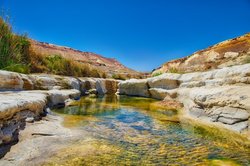 In desert areas around Israel, natural springs or fountains were known as the "eye" of the landscape. It would be a place of refuge, living water that sustained thirsty and weary desert dwellers. These natural springs are bright sparkling "eyes" of the desert. In the Old Testament God found a weary slave girl named Hagar by a well spring in the desert. Genesis 16:7- The angel of the LORD found Hagar near a spring in the desert; it was the spring that is beside the road to Shur. It is here, by this spring, that Hagar named God, "the God who sees me". Genesis 16:13- She gave this name to the Lord who spoke to her: “You are the God who sees me,” for she said, “I have now seen the One who sees me.” Notice, they saw each other. Hagar makes it clear that God saw her and she saw God. It was the life sustaining drink she needed. God led me to a "Hagar" this week. I met some friends for coffee and the entire time, God was burdening my heart for the young girl who served us. After my friends left, I went up to her and told her that God was burdening my heart for her. She began to cry immediately. She tried to hold herself together while I was telling her that Jesus sees her and loves her. Do you know what she said? She said, "Lately I've been wondering, really wondering if God is real, if He sees me." She is desperate for living water to sustain and give life to her soul. She needs the living water of Christ's Spirit. Water as God intends is living. It is pure, Heaven sent and gives our soul life giving "sight". I assume that is why the word spring is the Hebrew word ayin (ah-yin) and appears 495 times as the word "eye" and 216 times as "sight". Yet it also appears as "spring" 11 times and "well" 11 times. What did Jesus say about fountains (or rivers) of living water? It was for our soul. John 7:37-39- On the last and greatest day of the festival, Jesus stood and said in a loud voice, "Let anyone who is thirsty come to me and drink. Whoever believes in me, as Scripture has said, rivers of living water will flow from within them." By this he meant the Spirit, whom those who believed in him were later to receive. Up to that time the Spirit had not been given, since Jesus had not yet been glorified. Do you know what festival was Jesus attending? What is the significance of him speaking in a "loud voice" on the "last and greatest day" of this festival? It was the Feast of Tabernacles (John 7:2) which at one point in Jewish history had a water ceremony added as part of the 7 day celebration.* Every morning of this festival, priests, musicians, and worshippers would parade from the Water Gate as the priest would sing or shout, "With joy you will draw water from the wells of salvation", see Isaiah 12:3. They would be accompanied by trumpet blasts and singers. There was one that was the greatest and most celebratory. Apparently ancient rabbis wrote, "Anyone who has not seen this water ceremony has never seen rejoicing in his life." * The water celebration symbolized dependence upon God for blessing their harvest and providing living water to sustain His people. Water could be quite scarce in the desert and God's people depended upon Him to provide the living water from Heaven or from the springs that bubbled up from the desert rocks. When Jesus shouted loudly for people to come to Him for living water, He was telling people that He was God. He boldly shouted for them to get their living water by drinking from water of His Spirit. This was a provocative statement meant to address the great division at this festival about who Jesus was, read John 7. We celebrate Easter; but we don't celebrate waiting on the Spirit. My personal opinion is that we should celebrate it. I see blessing in asking for the Spirit, to be filled, to want more. Jesus said to ask and keep on asking, (Luke 18:1, Luke 11:11-13). Luke 11:11-13- Which of you fathers, if your son asks for a fish, will give him a snake instead? Or if he asks for an egg, will give him a scorpion? If you then, though you are evil, know how to give good gifts to your children, how much more will your Father in heaven give the Holy Spirit to those who ask him!” We are approaching the Feast of Tabernacles, 50 days post Passover (Easter). The greatly anticipated water ceremony of the Spirit being poured out from Heaven as gift, also known as Pentecost. This year the official date lands on Sunday, June 4th. It was poured out as promised, see Acts 2:1. Take the next many days to ask for more of the Spirit. Ask to be filled with more! Be like a child, ask for more! Jesus taught persistence in asking, shameless audacity, Luke 11:8. Go to him at midnight, wait on Him and pursue him at uncomfortable hours, outside of your norm. Watch with Him for an hour. Position yourself by the well, He sees you. Tell him how much you need more living water for your thirsty soul. Be blessed and filled! He rewards those who earnestly seek Him! Hebrews 11:6- And without faith it is impossible to please God, because anyone who comes to him must believe that he exists and that he rewards those who earnestly seek him. * http://jewishencyclopedia.com/articles/14185-tabernacles-feast-of
0 Comments
Psalm 32:2- BLESSED is the man unto whom the LORD does not impute iniquity, and in whose spirit there is no deceit (guile).  Guile- (1) a letting down or relaxing of the hands, indolence, lack of exertion, slothful (2) deception, fraud. * In prayer, God wants us to search our hearts for guile. There is blessing if we do, as noted in Psalm 32:2 above. When Paul wrote his letters to the church, he defended his honesty, (1 Timothy 2:7, 2 Corinthians 1:23, 2 Corinthians 10:11). It is clear he was burdened to represent God in spirit and in truth. Paul's hands were not slack in service, in speaking truth, or in knowing the God he served. We can conclude that Paul was one in whose spirit there was no guile. Who else was noted as having a spirit that had no guile, i.e. deceit? Nathanael, one of the 12 disciples of Jesus. John 1:47- “When Jesus saw Nathanael approaching, he said of him, “Here truly is an Israelite in whom there is no deceit.” In their first conversation, Jesus lets Nathanael know he saw him even before he came to Galilee that day. Jesus told Nathanael that he saw him “still under the fig tree before Philip called you”. Our God is a God who sees us and searches out what is in our hearts, Genesis 16:13. What was the importance of mentioning the fig tree Nathanael sat under? In a book titled “The Parable of Joy”, the author Michael Card reveals that the fig tree was a place of prayer for rabbinic students**. Michael Card also states that in the days of Jesus, true students of God would always pray for the coming of the Messiah. Therefore, Jesus saying he saw Nathanael under the fig tree is most probably saying that Nathanael was not only praying at the time he saw him; but, that Nathanael was praying about the hope of the coming Messiah! There would be much more to say about that interaction; but the focus is on God seeing us in prayer and seeing the state of our heart. And according to Jesus, Nathanael was a true worshipper because he was one without guile, i.e. deceit. His hands were not slack in crying out for the coming Savior! Who else can we find that would be acknowledged publicly by God as one not having any guile? What about Job? Job was a man whom God allowed severe suffering. The trial of unjust suffering took his family, his reputation, his wealth, his health, his strength, his answers. But it’s been recorded, in the last chapter of the book of Job, God made it clear, in a public way, there was no guile in Job, see Job 42:7. What made God say this? Well... God and Job had a vulnerable and honest relationship. Yes Job struggled a lot with why he was experiencing so much pain. But after a long struggle with God, after a lot of conversing back and forth with God, Job concludes his eyes saw God. He saw God’s true nature, especially in comparison to himself. This leads Job to repent “in dust and ashes”, Job 42:1-5. This is a Hebraic way to say, he mourned deeply. Job’s mourning was over his own sinfulness and limited spiritual sight. God’s response? God affirms Job in front of his friends. He tells Job's friends they were wrong. God tells Job’s friends he is angry with them because their counsel to Job was not an accurate description of Himself. In contrast, God judged Job to be honest. God publicly states He approved of Job’s words! Job’s suffering produced a holy outcome. No guile within. Honest and open prayer dialogue led to accurate and holy conclusions! What happens next is awesome. God gives Job a prayer assignment! Not only that, He says he will answer Job's prayers, Job 42:8. In obedience, and clearly with a heart of mercy and grace, Job prays for his friends. Job 42:10- After Job prayed for his friends, the LORD restored his fortunes and gave him twice as much as he had before. RESTORED! DOUBLE BLESSING! This is the same symbolic “fig tree of prayer” God saw Nathanael sitting under. It’s the one He wants to find us sitting under. Praying to know the Savior, having eyes that see the Savior, confessing our deep need for his grace and truth, and humbly asking God to have mercy on others (which includes those who betray us). God sees us in the hidden place of prayer- Matthew 6:6-But when you pray, go into your room, close the door and pray to your Father, who is unseen. Then your Father, who sees what is done in secret, will reward you. What a wonderful incentive to steal away with our gentle and humble Savior! Jesus interacts with another fig tree situation beyond Nathanael. It is the one without fruit. Mark 11:12-14- The next day as they were leaving Bethany, Jesus was hungry. Seeing in the distance a fig tree in leaf, he went to find out if it had any fruit. When he reached it, he found nothing but leaves, because it was not the season for figs. Have you ever wondered why when Jesus was hungry; he went looking for a fruit on a fig tree that was not in season to produce fruit?! I have wondered this many times over the years. Jesus cursed this tree; and stated it would never produce fruit ever again, see Matthew 21:19- 20. As I meditated on that again for this blog, I wondered if he was really "hungry" to find the "fruit" of someone praying under the tree? I won't claim that as correct interpretation; but I do wonder. As God, he would have known the tree had no fruit on it. I think scripture of this account in both Mark 11 and Matthew 21 at a minimum does prove Jesus had prayer on his mind. After the fig tree, His next stop was the temple. Once there he publicly rebukes many for corrupting his house of prayer. He upends tables of money changers and benches of those selling doves. In addition to driving people out and tearing down the whole set up, he reveals his heart, “Is it not written: ‘My house will be called a house of prayer for all nations’? But you have made it a den of robbers.’” (Mark 11:17, Matthew 21:13). I do believe God hungers for prayers like those of Nathanael, Job, and Paul. Believers who “see” him clearly and judge themselves humbly in his presence. Take time to go into the secret place where only God sees you. Ask to see him more clearly. Ask Him to expose any guile in you. Confess your weaknesses to him, ask for healing. Take time to pray for your friends. Challenge yourself to seek God’s mercy for someone who has hurt or betrayed you. Believe you have received what you ask for, Matthew 21:21-22. May we be a body of believers whose hands are not slack in prayer, in whose spirit there is no guile! May God find us under our "fig trees" praying for the coming of our Savior! 2 Corinthians 1:8-11 We do not want you to be uninformed, brothers and sisters, about the troubles we experienced in the province of Asia. We were under great pressure, far beyond our ability to endure, so that we despaired of life itself. Indeed, we felt we had received the sentence of death. But this happened that we might not rely on ourselves but on God, who raises the dead. 10 He has delivered us from such a deadly peril, and he will deliver us again. On him we have set our hope that he will continue to deliver us, as you help us by your prayers. Then many will give thanks on our behalf for the gracious favor granted us in answer to the prayers of many. * F. Brown; S. Driver; C. Briggs, "The Brown Driver Briggs Hebrew and English Lexicon", Hendrickson Publishers; Reprint edition (September 1, 1994) ** Card, Michael. "Parable of Joy", Discovery House Publishers (November 1, 2007) More often in the blogs, I have been referencing visual images behind words that define them. These pictures are meant to help you meditate on God’s Word, know him better, help you pray, and rest in His presence. Recently to describe God’s love (châbab H2245) of the saints as defined in Deuteronomy 33:3, I posted 4 pictures. HOVER over each one to read the language that defines this special love. 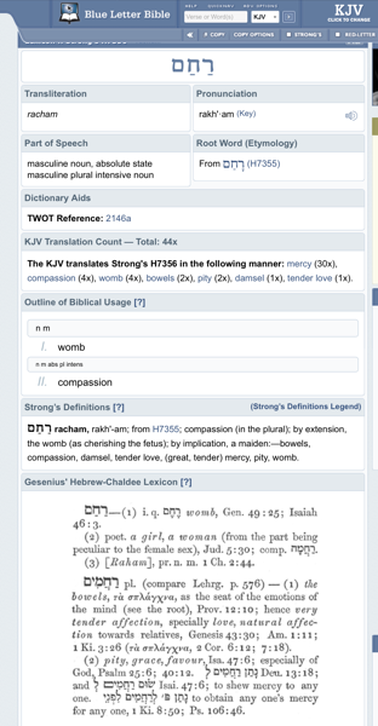 The meditation exercise from the blog of 3/25/17 (titled-"God loves the Saints") suggested you visualize yourself in the context of those 4 images above. In last week’s blog (titled- "What are your consuming thoughts?"), I shared a picture of one word that is part of God’s definition of “meditate”. The blog reveals how that picture reveals Jesus meditating on us and has suggestions for processing in prayer. This week as we approach Mother’s Day, the picture to meditate upon is the womb. God has a womb. That is not a heretical statement. Isaiah 46:3 KJV- Hearken unto me, O house of Jacob, and all the remnant of the house of Israel, which are borne by me from the belly, which are carried from the womb: H7356 God wants to be known as the God who bore us from his belly, who carries us from the womb and beyond. Here is the next verse from Isaiah 46 above- Isaiah 46:4- Even to your old age and gray hairs I am he, I am he who will sustain you. I have made you and I will carry you; I will sustain you and I will rescue you. God doesn’t stop carrying his people after delivery. Eternally held, eternally sustained and rescued. With this imagery do you see how intent God is to paint a living picture of himself? His language is not abstract, nor is it meant for diverse interpretation. God is very specific. If we take the time to meditate on His Word, we see God narrowly define His love in very detailed ways. All these definitions ultimately reveal Christ. He is THE living image of God. Look more closely at the reference of womb from Isaiah 46:3 being the Hebrew word 7356. (If you have trouble reading it, click on the image to reach the website link.) In the area where it says KJV translation count, it states #H7356 is found 44 times. Yet it is not found as "womb" in those 44 occurrences. Most often this word (30 times) is translated as mercy. If you were to ask some people how they define mercy, how diverse the answers? How many would include a mother’s womb? We need to be clear that God specifically defines himself as a God who carries to term and beyond this earthly life. He is not open to various interpretations. And thank Heaven! Because His definition is pure and holy and good! How beautiful and moving that God wants people to see His mercy as a mother’s womb! This part of the body is also known as bowels and is the seat of the emotions of the mind. Again see H7356 mention “bowels”. Our God’s thoughts towards his people move Him deeply. His mercy is full of tender emotion, compassion, grace, a place of unmerited favor! Therefore, for Mother’s Day, celebrate this supernatural motherly care of God.
Tell others about the 2nd womb, the mercies of God. Spirit gives birth to spirit; share with others the need to be born from above to enter Heaven, John 3:3-8. John 3:3-8 New International Version (NIV) 3 Jesus replied, “Very truly I tell you, no one can see the kingdom of God unless they are born again.” 4 “How can someone be born when they are old?” Nicodemus asked. “Surely they cannot enter a second time into their mother’s womb to be born!” 5 Jesus answered, “Very truly I tell you, no one can enter the kingdom of God unless they are born of water and the Spirit. 6 Flesh gives birth to flesh, but the Spirit gives birth to spirit. 7 You should not be surprised at my saying, ‘You must be born again.’ 8 The wind blows wherever it pleases. You hear its sound, but you cannot tell where it comes from or where it is going. So it is with everyone born of the Spirit.” Question 1- If you were to guess between these 2 pictures, which animal’s nature is referenced in the biblical definition of meditation? Question 2- Which definition is the definition of meditation as God designed it? Definition #1 of Meditation: think deeply or focus one's mind for a period of time, in silence or with the aid of chanting, for religious or spiritual purposes or as a method of relaxation. Definition #2 of Meditation: to murmur in pleasure or in anger, to moan, growl, roar, utter, muse, mutter, meditate, devise, plot, speak, sing, study. Regarding the above definitions, #1 is Oxford dictionary's definition. It is worldly, muddled with various religious approaches and therefore inaccurate. Worldly thought focuses on silence, possibly aided by chanting, for the express purpose to relax and or for spiritual purposes. Its definition is wide and tries to encompass all beliefs. Biblical meditation does not cast so wide a net. By contrast in definition #2, meditation is NOT silent nor for the purpose of relaxing. It is vocal, emotional, conversational, curious, lyrical, thought provoking, a means for decision making and learning. God intends meditation to renew the mind and transform his people, not put us to sleep. Psalm 1:2-3 But his delight is in the law of the LORD; and in His law he meditates day and night. He shall be like a tree planted by the rivers of water, that brings forth its fruit in its season, whose leaf also shall not wither; and whatever he does shall prosper. Those verses are about delighting in the law of God. Meditating on God’s Word, Day and night, day and night. Whatever you do shall prosper! That is a dramatic promise. Question #3- Pick A or B. What are the thoughts that most accurately describe your meditation, day and night, night and day? A. I worry (obsess) with, “How will this all work out? What do I need to do next?” Or B. I frequently remind myself, “The Lord is my Shepherd, I lack nothing. He will lead and guide and prosper my way forward. I will trust and not be afraid.” By far, most of us will answer A. Our minds are practically an intolerable force to deal with! Worry, anxiety, fear, selfish motive, hungry for more, self-protective, negative, cynical, distrustful of God’s care. We have SO many consuming thoughts not aligning with God’s promises! Take a minute and review your current and consuming thoughts. List them, what are they? What are the repetitive questions or thoughts continually being considered in your mind? Referring again to question #1 above, did you choose the roaring lion with his prey or the bleating lamb? The lion roaring is the correct answer. Look closely at the definition of meditation, you will see it is translated one time as the verb “roaring”. Where is the scripture reference to "roaring" found? In Isaiah 31:4- WHO do you see roaring in Isaiah 31:4? Who is the lion with his prey, unwilling to give up his catch despite the fact that he is surrounded by shepherds intent to take his life? Who did not run and was willing to be captured? Who was unafraid of all those surrounding him with weapons? Who was circled with loud taunts calling for his crucifixion? Who did not resort to the same methods of attack but instead gave his life? Who came down to fight for His prized possession, i.e. you and me and all who call on His Name? Who cried out with a loud cry on the cross, "It is finished!" The LORD of hosts, the LION of JUDAH!!! He is the One whose meditation over his word to redeem was not quiet and accomplished by chanting. It is a ferocious roar of protection and salvation over your life and mine! Revelation 5:5 New International Version (NIV) 5 Then one of the elders said to me, “Do not weep! See, the Lion of the tribe of Judah, the Root of David, has triumphed. He is able to open the scroll and its seven seals.” Meditate on the One who roars over you at the cost of His own life. He has triumphed! May you assess the continual musings of your mind. Do you really connect with the depth of His love for you? Would you be so consumed with other thoughts if you mused more on Jesus and the ferocious love of God? Do a hard stop with God in prayer. Let go of worry, cast your cares on Christ. Boldly confess your weaknesses that the power of Christ might rest on you. Believe in the One who refuses to let you go, at the cost of His own life. REMEMBER- Romans 8:32- He who did not spare his own Son, but gave him up for us all—how will he not also, along with him, graciously give us all things? What do you need? Meditate upon Jesus, talk to God who graciously gives us all that we need, 2 Peter 1:3. If this ministry is a blessing to you, if you see the purpose of this little missionary called to dedicate her time to intercession for God's Kingdom so that His Kingdome comes on earth as it is in Heaven, consider making a donation. May the LORD richly bless your gracious offerings and prayers. |
Ways to stay connected to ministry offerings:
1- Sign up to receive blog and email announcements 2- Search on Facebook and join our private Facebook group> Peace Be Still Daily Prayer Download Categories
All
Archives
March 2024
|


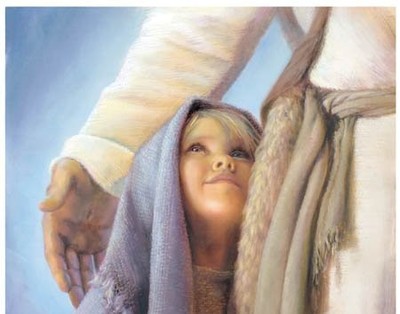




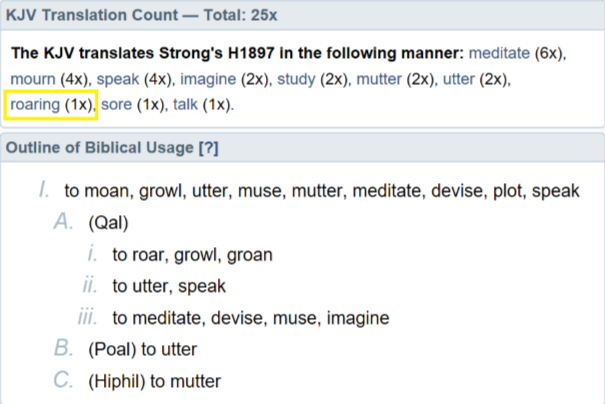
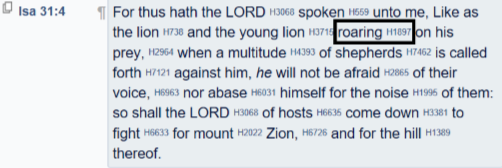
 RSS Feed
RSS Feed
